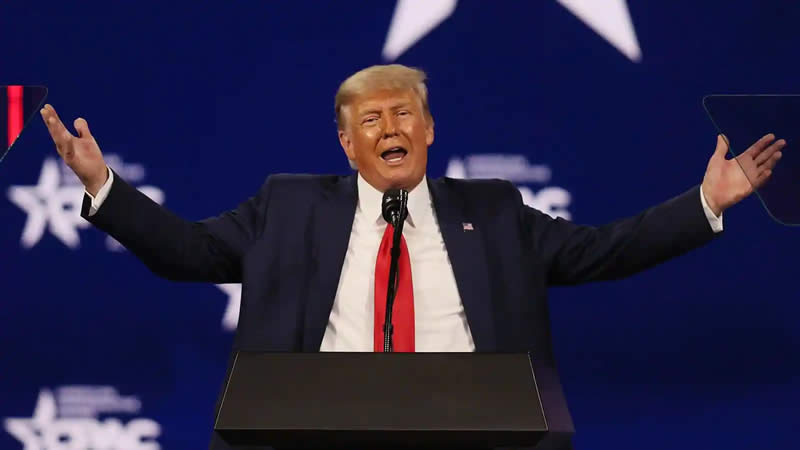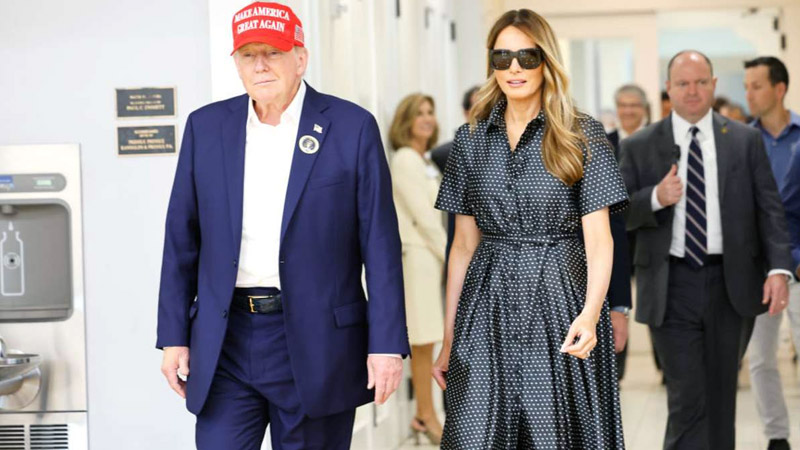Concerns Arise Over Donald Trump’s Health During Court Appearances as Expert Points to Signs of Dementia

Regency. (AFP)
Donald Trump’s recent courtroom appearances have not only cast a spotlight on his legal battles but also ignited discussions about his health, particularly concerns about potential signs of dementia. These speculations are fueled by observations of Trump’s unusual behaviors during legal proceedings, which include episodes of falling asleep and other bodily control issues.
Dr. John Gartner, a seasoned psychologist with extensive experience, has openly discussed what he perceives as alarming signs of neurological decline in Trump. In an interview with The Mirror, Dr. Gartner highlighted Trump’s repeated instances of dozing off during critical moments of his trial—a situation that he finds particularly unusual given the high-pressure environment of a courtroom where the stakes are exceptionally high for Trump.
Explaining the natural physiological response to stress, Dr. Gartner noted, “The natural stress response of adrenaline is one that, even if we’re exhausted, gives us another boost of energy. So, anybody who’s in that position, you could see why it would be so unusual for them to fall asleep.” He emphasized the severity of Trump’s condition by adding, “He can’t control it. To uncontrollably fall asleep during the day is something very common among patients with dementia.”
Further illustrating his point, Dr. Gartner made a distinction between occasional and frequent incidents of falling asleep in inappropriate situations. He remarked humorously about falling asleep himself at the opera but pointed out that Trump’s consistent sleepiness during the trial—occurring five out of seven days—was a strong indicator of a deeper issue. “If he did it once, you might say, ‘Oh, he had a bad night.’ But this is different. He can’t fall asleep. That’s different,” he explained.
In addition to these concerns, Trump has also been reported to pass gas during proceedings, an action that, while often the subject of jokes, has serious implications in a medical context. Dr. Gartner contextualized these incidents within the broader spectrum of dementia, pointing out that such loss of control over basic biological functions is symptomatic of the condition.
“This thing about the farting—it was a big joke on Twitter and late-night comedy, but again, we have to put these things into clinical context. This means something. He seems to be losing control of basic biological functions right in front of our eyes,” Dr. Gartner stated. The psychologist underscored the potential implications of these behaviors on Trump’s public image and legal strategy.
The involuntary actions in court are consistent with dementia symptoms, which imply an inability to control fundamental bodily functions such as sleep and excretion. This gradual loss of control, Dr. Gartner warned, is likely to manifest in increasingly uncontrollable and less concealable ways, posing significant challenges for Trump both personally and professionally.
As discussions about Trump’s health continue, the focus on his courtroom demeanor underscores the broader concerns about aging and cognitive health in high-pressure public roles. Dr. Gartner’s insights suggest that the observed behaviors may not only affect the immediate legal proceedings but also have long-term implications for Trump’s capacity to engage in his various personal and professional endeavors.


